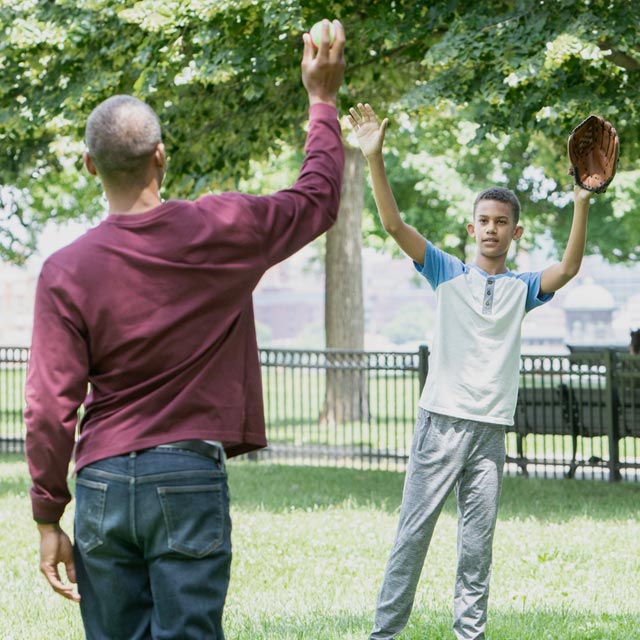
Since routine vaccination began, the number of children who get sick or die from diseases that vaccines prevent has greatly decreased.source: 1 Vaccines are so successful that some diseases are rarely seen in the United States anymore.source: 2 Without vaccines, diseases that are rare can—and do—come back.source: 3
- Before being approved for use in the United States, testing must prove vaccines produce an immune response in our bodies that helps protect against diseases.source: 4 Vaccine clinical trials require thousands of volunteers.source: 4 Usually in clinical trials, some volunteers receive a vaccine and some do not. Researchers track the health of volunteers over time to see who gets sick with the disease or if they produced a good immune response to protect them from the disease. They also confirm the safety of the vaccine.source: 5 Sometimes however, vaccines are licensed based solely on immunogenicity data.
- Vaccines prevent deaths. Each year, vaccinations prevent 4 million deaths worldwide.source: 6 Between 2021 and 2030, the measles vaccines alone will prevent an estimated 19 million deaths.source: 6,source: 7
- Vaccination prevents severe illness. People who were up to date on COVID-19 vaccinations were 10.5 times less likely than people who were not vaccinated to need hospital care for COVID-19 in early 2022.source: 8
Key Evidence
- A disease is less likely to spread in communities where most people are vaccinated against the disease.source: 9 Before a vaccine for measles came along in the 1960s, millions of people in the United States got the disease every year.source: 10 By 2000, measles vaccination coverage was 95% or higher across the United States.source: 10,source: 11,source: 12 Because so many people have received their measles vaccine, the disease was eliminated in the United States.source: 12
- Disease outbreaks happen in communities with lower vaccine coverage.source: 13 For instance, measles now poses little risk to most people in the United States because of high vaccination rates. But outbreaks of the disease do occur, especially in communities that do not have high vaccination rates.source: 12
- Some vaccines can eradicate diseases. Before a vaccine was used to eradicate smallpox, 3 out of 10 people with smallpox died.source: 14 Thanks to a global vaccination effort, smallpox is gone and no longer a threat.source: 14

A Deeper Dive: How We Know Vaccines Work
We know vaccines work based on at least three things:
- How well they create an immune response
- How well they reduce disease in a community
- How well they prevent serious illness
The first point on the list is about how vaccines teach the body to see and then fight diseases. The second point is about the fact that many vaccines help reduce the spread of disease. Research on vaccines started in the late 1700s.source: 14,source: 15 For more than 300 years, scientists and researchers around the world have continued to study and monitor vaccines.source: 14
The third point on the list is about how vaccines prevent serious illness. Many vaccines are good at preventing someone from getting sick, but vaccines are not perfect. Sometimes, a vaccinated person will still get sick.source: 16 Even if that happens, vaccines are excellent at preventing a child from having to go to the hospital or, worse yet, from dying.source: 16 Thanks in large part to childhood vaccination programs, the number of children who get sick, are hospitalized, or die from vaccine-preventable diseases has dropped dramatically over time.source: 1
Before a vaccine is approved for use in the United States, the U.S. Food and Drug Administration (FDA) evaluates a vaccine for safety and effectiveness and decides whether the benefits outweigh the risks.source: 5
Sometimes, people get sick from a disease after getting vaccinated. This can happen because:
- Few things work 100% of the time, including vaccines.source: 16 Most people will be protected but some may still get sick. For instance, only about 3 in 100 fully vaccinated people will get measles.source: 17 But even if a vaccinated person does get sick, the illness is likely to be much less severe than if they had not been vaccinated.source: 16
- Vaccines may not work as well in people with weakened immune systems.source: 18 A weakened immune system cannot fight off diseases very well, perhaps due to advanced age, genetics, or another illness or condition such as cancer.source: 19 This is why it is so important that everyone around these people are vaccinated.
- The person’s body was already fighting a serious illness. It is okay to get your child vaccinated if they have a cold, but if they have a more serious illness, it is better to wait.source: 16,source: 20,source: 21
- The person was infected with the virus or bacterium just before vaccination or soon afterward. It takes a little time for a vaccine to work with a person’s immune system. If the person is already sick, then the vaccine might not have enough time to help build immunity. It typically takes 2 weeks for immunity to develop after vaccination. And some vaccinations require multiple doses. This is why it is best to get vaccinated before someone is likely to be exposed to a disease.source: 16,source: 20
- The vaccine was a little different from the viruses spreading in people. This can happen with the flu vaccine because the influenza virus changes a little bit every year. Even if you end up with the flu after getting vaccinated, you are still less likely to get really sick or need hospital care.source: 22
The important thing to remember is that vaccines work really well to prevent severe illness and death for most people.source: 5,source: 23 Learn more about vaccine safety and efficacy.
Vaccines help protect your community and those unable to get vaccinated. Learn how community immunity works.
More information
- Johns Hopkins: What Is Herd Immunity and How Can We Achieve It with COVID-19?
- American Academy of Pediatrics: How Vaccines Work
- Yale Medicine: Vaccines Are Important—But What Are They and How Do They Work?
Still have questions? Talk to your child’s doctor, nurse, or pharmacist.
Sources
- Official Journal of the American Academy of Pediatrics: Impact of Routine Childhood Immunization in Reducing Vaccine-Preventable Diseases in the United States
- American Academy of Pediatrics: 14 Diseases You Almost Forgot About Thanks to Vaccines
- FDA: Vaccines for Children - A Guide for Parents and Caregivers
- CDC: How Vaccines are Developed and Approved for Use
- FDA: Vaccine Development – 101
- CDC: Fast Facts on Global Immunization
- Social Science Research Network: Modeling the Impact of Vaccination for the Immunization Agenda 2030: Deaths Averted Due to Vaccination Against 14 Pathogens in 194 Countries from 2021-2030
- JAMA Internal Medicine: COVID-19-Associated Hospitalizations Among Vaccinated and Unvaccinated Adults 18 Years or Older in 13 US States
- FDA: Vaccine Safety Questions and Answers
- Journal of Infectious Disease: Measles in the 21st Century: Progress Toward Achieving and Sustaining Elimination
- CDC: Measles Cases and Outbreaks
- CDC: Assessing Measles Outbreak Risk in the United States
- Health Affairs: The Benefits To All Of Ensuring Equal And Timely Access To Influenza Vaccines In Poor Communities
- CDC: History of Smallpox
- Children's Hospital of Philadelphia: Vaccine History: Developments by Year
- CDC: Explaining How Vaccines Work
- CDC: Questions About Measles
- CDC: Travelers with Weakened Immune Systems
- CDC: Respiratory Viruses and People with Weakened Immune Systems
- WHO: Vaccine efficacy, effectiveness and protection
- CDC: Who Should NOT Get Vaccinated with these Vaccines?
- FDA: It's a Good Time to Get Your Flu Vaccine
- FDA: Vaccines Protect Children From Harmful Diseases
Disclaimer Policy: Links with this icon () mean that you are leaving the HHS website.
Disclaimer Policy: Links with this icon () mean that you are leaving the HHS website.
- The Department of Health and Human Services (HHS) cannot guarantee the accuracy of a non-federal website.
- Linking to a non-federal website does not mean that HHS or its employees endorse the sponsors, information, or products presented on the website. HHS links outside of itself to provide you with further information.
- You will be bound by the destination website's privacy policy and/or terms of service when you follow the link.
- HHS is not responsible for Section 508 compliance (accessibility) on private websites.
- For more information on HHS's web notification policies, see Website Disclaimers.
